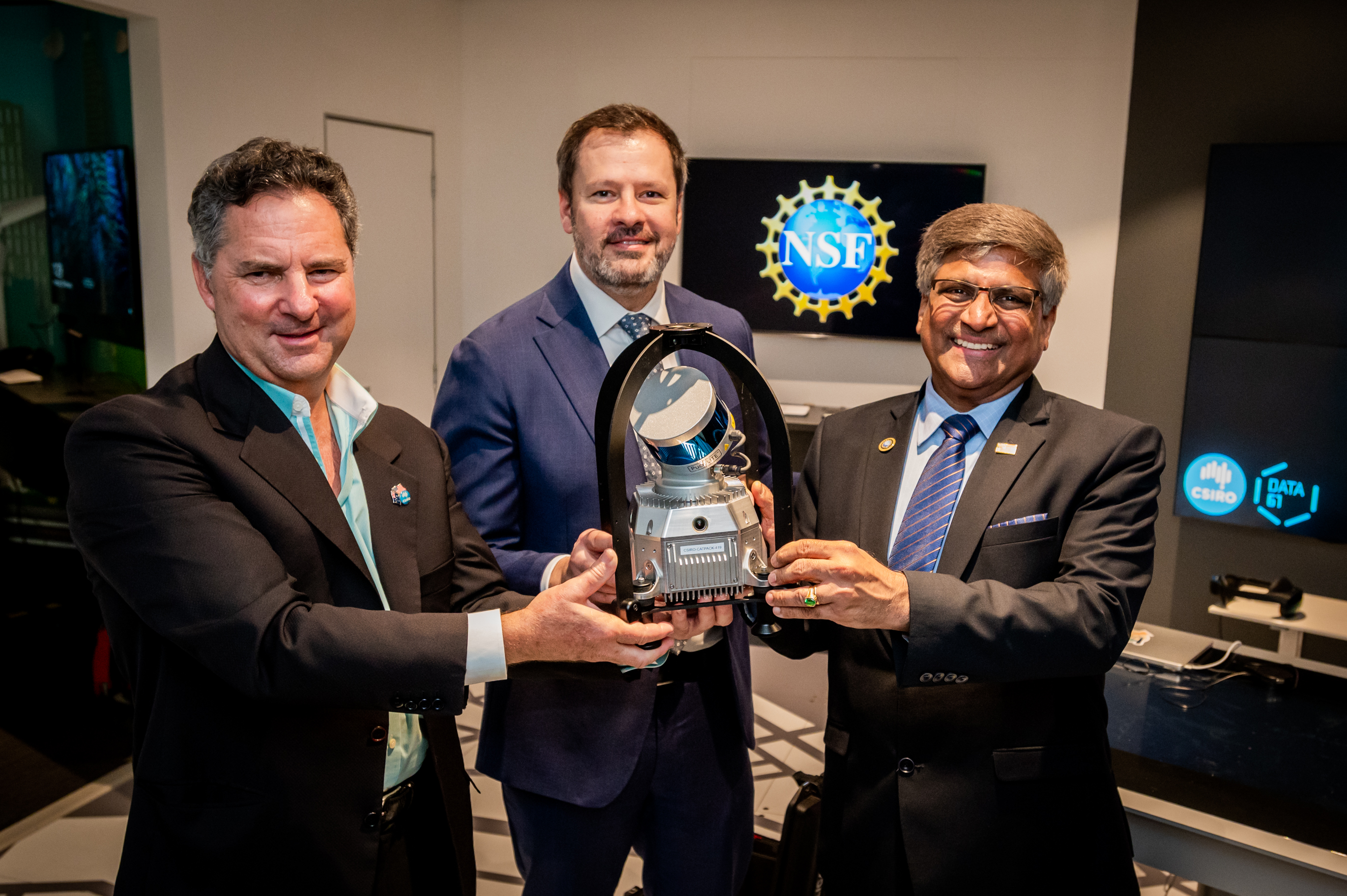CSIRO has formed a long-term strategic partnership with the United States' National Science Foundation (NSF) aimed at accelerating joint research in areas of mutual priority.
The purpose of this partnership is to further critical research in areas identified as priorities by both our governments, including in areas such as artificial intelligence (AI), low emission technologies (LETs) and sustainability. The partnership aims to establish and deepen collaborations between Australian and US researchers; assist in the identification, commercialisation and uptake of new technologies; and further societal and economic impact as a result of the research and technology adoption.
Under this strategic partnership, CSIRO and NSF are supporting several initiatives involving organisations from both nations. One of these initiatives is the Collaboration Opportunities in Responsible and Equitable AI. This initiative funds joint projects involving Australian and US based researchers which aim to:
- Accelerate ground-breakingresearch in responsible and equitable AI.
- Undertake AI research that will support the progress of one or more of CSIRO’s Missions.
- Strengthen bilateral partnerships and collaboration between Australian and US research teams and organisations.
- Reduce some of the barriers currently faced by researchers in working internationally by supporting focused, collaborative projects.
Funded projects
A combined total of AUD$9.6 million has been invested by CSIRO and the NSF in six projects in 2023.
Three projects to minimise the impact of pandemics, harmful environmental emissions, and drought using responsible AI were announced in February:
- Fair Sequential Collective Decision-Making - University of Nebraska-Lincoln, Rensselaer Polytechnic Institute and UNSW Sydney.
- Understanding Bias in AI Models for the Prediction of Infectious Disease Spread - Emory University, Arizona State University, George Mason University, UNSW Sydney and RMIT University.
- Graph Representation Learning for Fair Teaming in Crisis Response - UCLA, The University of Texas at Austin, University of Technology Sydney and the University of Melbourne.
An additional three projects leveraging responsible AI for developing clean energy, combating climate change, and modelling dynamic systems, were announced by Minister Husic at the opening of Australia's AI Month in November 2023:
- Responsible AI Enabling the Internet of Energy – Georgia Tech, Monash University, CSIRO
- Responsible AI for Climate Change – University of Chicago, ANU
- Towards Interpretable and Responsible Graph Modeling for Dynamic Systems – Florida Atlantic University, Griffith University, CSIRO

CSIRO has formed a long-term strategic partnership with the United States' National Science Foundation (NSF) aimed at accelerating joint research in areas of mutual priority.
The purpose of this partnership is to further critical research in areas identified as priorities by both our governments, including in areas such as artificial intelligence (AI), low emission technologies (LETs) and sustainability. The partnership aims to establish and deepen collaborations between Australian and US researchers; assist in the identification, commercialisation and uptake of new technologies; and further societal and economic impact as a result of the research and technology adoption.
Under this strategic partnership, CSIRO and NSF are supporting several initiatives involving organisations from both nations. One of these initiatives is the Collaboration Opportunities in Responsible and Equitable AI. This initiative funds joint projects involving Australian and US based researchers which aim to:
- Accelerate ground-breakingresearch in responsible and equitable AI.
- Undertake AI research that will support the progress of one or more of CSIRO’s Missions.
- Strengthen bilateral partnerships and collaboration between Australian and US research teams and organisations.
- Reduce some of the barriers currently faced by researchers in working internationally by supporting focused, collaborative projects.
Funded projects
A combined total of AUD$9.6 million has been invested by CSIRO and the NSF in six projects in 2023.
Three projects to minimise the impact of pandemics, harmful environmental emissions, and drought using responsible AI were announced in February:
- Fair Sequential Collective Decision-Making - University of Nebraska-Lincoln, Rensselaer Polytechnic Institute and UNSW Sydney.
- Understanding Bias in AI Models for the Prediction of Infectious Disease Spread - Emory University, Arizona State University, George Mason University, UNSW Sydney and RMIT University.
- Graph Representation Learning for Fair Teaming in Crisis Response - UCLA, The University of Texas at Austin, University of Technology Sydney and the University of Melbourne.
An additional three projects leveraging responsible AI for developing clean energy, combating climate change, and modelling dynamic systems, were announced by Minister Husic at the opening of Australia's AI Month in November 2023:
- Responsible AI Enabling the Internet of Energy – Georgia Tech, Monash University, CSIRO
- Responsible AI for Climate Change – University of Chicago, ANU
- Towards Interpretable and Responsible Graph Modeling for Dynamic Systems – Florida Atlantic University, Griffith University, CSIRO
